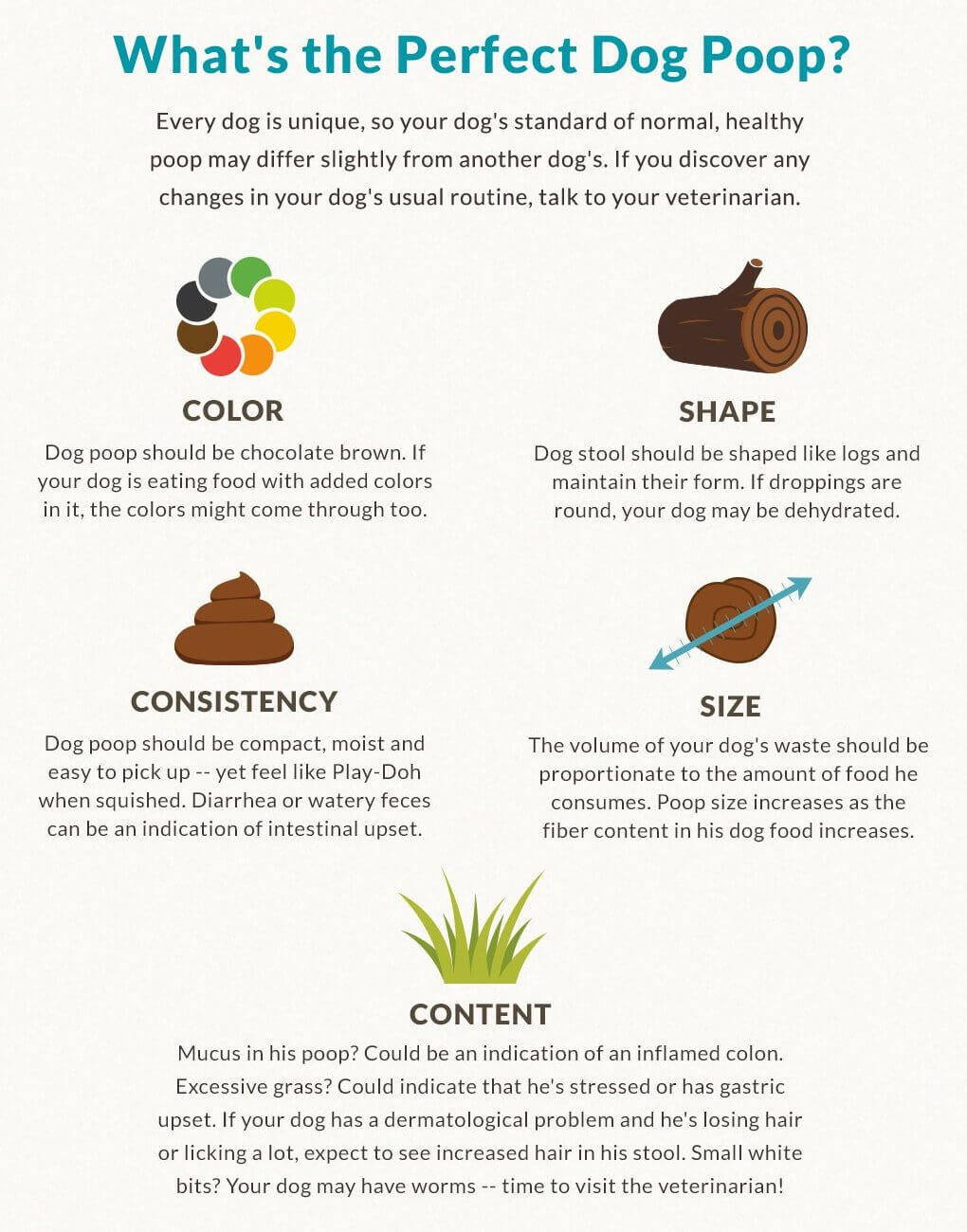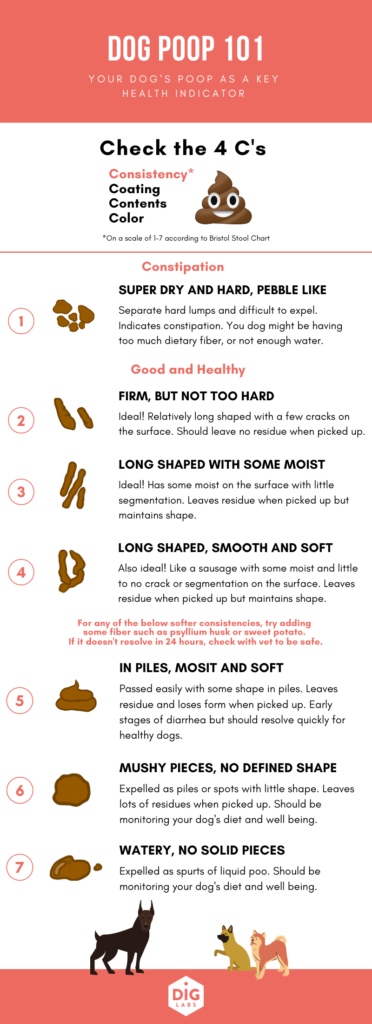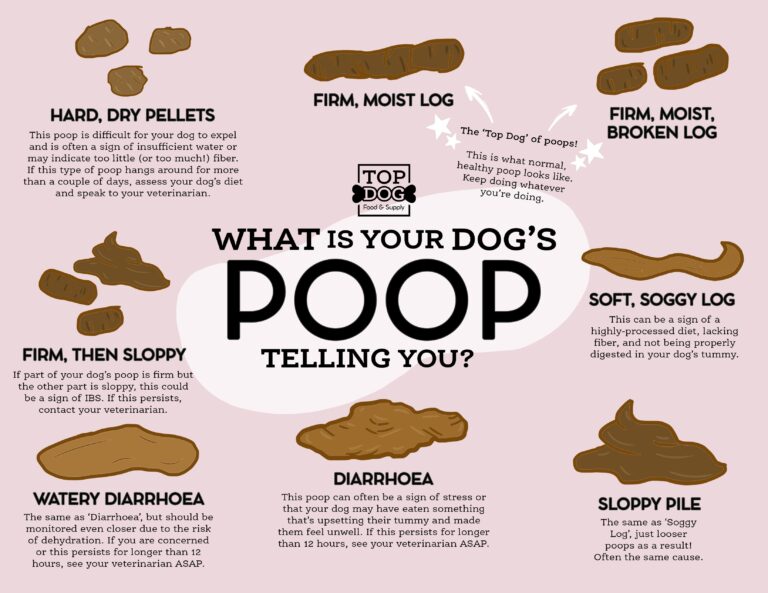If your dog is pooping a lot and it’s soft, it could be a sign of a gastrointestinal issue. It’s important to monitor your dog’s diet, ensure they are properly hydrated, and consult with a vet if the issue persists.
Changes in diet, stress, or underlying health concerns could be contributing to this issue. Pay attention to any other accompanying symptoms such as vomiting or lethargy, as these could indicate a more serious problem. By addressing this issue promptly, you can ensure your dog’s overall health and well-being.
Experiencing changes in your dog’s bowel movements can be concerning. If you’ve noticed that your dog is pooping more frequently and the consistency is softer than usual, it could signal an underlying health issue. While occasional irregularities in bowel movements are normal, persistent soft stools and increased frequency might indicate an underlying problem. We’ll explore potential causes for your dog’s increased and soft bowel movements and provide guidance on how to address this issue. It’s crucial to understand the possible reasons behind these changes and take appropriate action to ensure your dog’s health and well-being.

Credit: www.purina.co.nz
Common Causes Of Frequent And Soft Stool In Dogs
Frequent and soft stool in dogs can be caused by various factors including dietary changes, infections, parasites, or underlying health issues. It is important to consult with a veterinarian to determine the exact cause and ensure proper treatment for your dog’s condition.
Dietary Factors
Paying attention to your dog’s diet is crucial when it comes to their digestive health. Certain dietary factors can contribute to frequent and soft stool in dogs. One common culprit is a sudden change in diet. Dogs have sensitive stomachs, and a sudden switch in food brands or ingredients can upset their digestive system, resulting in loose stools. Additionally, feeding your dog table scraps or giving them access to food that is high in fat or fiber can also cause stomach upset and loose stools.
Bacterial Or Parasitic Infections
Infections caused by bacteria or parasites can wreak havoc on your dog’s digestive system, leading to frequent and soft stool. These pesky microorganisms can enter your dog’s body through contaminated food, water, or contact with other infected animals. Common bacterial infections include Salmonella and Campylobacter, while parasites like giardia and roundworms can also cause gastrointestinal distress. If your dog’s stool appears mucusy or has a foul odor, it’s important to contact your veterinarian to rule out any potential infections.
Food Intolerances Or Allergies
Just like humans, dogs can develop food intolerances or allergies that result in digestive upset. Certain ingredients commonly found in dog food, such as grains, dairy, and certain proteins, can trigger an adverse reaction in sensitive dogs. When a dog ingests something they are intolerant or allergic to, it can lead to diarrhea, loose stools, and even vomiting. If you suspect that your dog may have a food intolerance or allergy, your veterinarian may recommend an elimination diet to identify the specific ingredient causing the problem.
Stress Or Anxiety
Dogs can experience stress and anxiety, just like humans. Changes in their environment, such as moving to a new home, the addition of a new pet or family member, or even loud noises can trigger these emotions in dogs. When a dog is stressed or anxious, it can affect their digestive system, leading to loose stools. This is because stress can disrupt the normal functioning of the gut and cause an imbalance in the gut bacteria. Providing a calm and stable environment, as well as implementing strategies to help your dog manage their stress, can help alleviate gastrointestinal issues.
Medical Conditions
In some cases, frequent and soft stool in dogs may be a symptom of an underlying medical condition. Conditions such as inflammatory bowel disease (IBD), pancreatitis, and gastrointestinal infections can cause chronic diarrhea and loose stools. These conditions often require medical intervention and treatment from a veterinarian. If your dog’s stool consistently remains loose, it’s important to consult with your veterinarian to determine the underlying cause and develop an appropriate treatment plan.
Changes In Diet And Nutrition
If your dog is pooping a lot and the stools are soft, it could be a sign of digestive issues that can often be addressed through changes in diet and nutrition. Here are some strategies to consider for improving your dog’s digestion:
Switching To A High-quality Dog Food
Switching to a high-quality dog food can greatly improve your dog’s digestive health. Look for a dog food that contains high-quality protein sources, fiber-rich ingredients, and minimal fillers or artificial additives. Avoid foods with excessive grains and by-products, which can contribute to digestive upset.
Introducing Probiotics Or Digestive Enzymes
Introducing probiotics or digestive enzymes to your dog’s diet can aid in digestion and help restore healthy gut bacteria. Probiotic supplements or foods with added probiotics can promote a balanced digestive system, while digestive enzymes can assist in the breakdown of nutrients and absorption.
Feeding Small And Frequent Meals
Feeding your dog small and frequent meals throughout the day can help regulate their digestive system. This approach can prevent overloading the digestive tract and help manage issues such as diarrhea. Consider spreading your dog’s daily food portions into several small meals.
Ensuring Proper Hydration
Proper hydration is crucial for maintaining good digestion in dogs. Ensure that your dog has access to fresh water at all times and consider adding moisture-rich foods to their diet, such as wet dog food or broth, to support adequate hydration levels.
Avoiding Table Scraps And Unhealthy Treats
Avoid giving your dog table scraps and unhealthy treats, as these can disrupt their digestive system. Stick to nutrient-dense dog treats and refrain from feeding them human foods that may be too rich or fatty for their stomach to handle.
Identifying And Treating Infections
Fecal Exam For Bacteria And Parasites
If your dog is pooping a lot and it’s soft, it could indicate an underlying bacterial or parasitic infection. A fecal exam can help identify the presence of harmful microorganisms that may be causing the symptoms.
Prescription Medications
Once the infection is identified, your veterinarian may prescribe antibiotics or antiparasitic medications to treat the underlying cause of the soft and frequent bowel movements. It’s crucial to follow the prescribed dosage and complete the full course of treatment to ensure the infection is completely eradicated.
Strict Hygiene Practices
Proper hygiene is essential to prevent the spread of infections to other pets or even to humans. Practice strict hygiene measures such as regularly cleaning your dog’s living area, properly disposing of feces, and frequent handwashing after handling your pet or cleaning up after them.
Preventative Measures
To reduce the risk of future infections, consider preventative medications recommended by your vet, such as flea and tick preventatives. Additionally, ensure your dog has access to clean drinking water, maintains a nutritious diet, and is up to date on vaccinations.

Credit: scrumbles.co.uk
Managing Food Intolerances Or Allergies
If your dog is pooping a lot and it’s soft, managing food intolerances or allergies is crucial. Providing a balanced diet and identifying trigger foods can help alleviate digestive issues. Consult a vet to determine the best approach for your furry friend’s overall well-being.
If you’ve noticed that your dog is pooping a lot and their stool is soft, it could be a sign of food intolerances or allergies. Just like humans, dogs can develop sensitivities to certain foods, leading to digestive issues and loose stools. This can be a frustrating situation for both you and your furry friend, but the good news is that there are several ways to manage these conditions and improve your dog’s digestive health and overall well-being.Elimination Diet
One approach to managing food intolerances or allergies in dogs is by implementing an elimination diet. This involves removing all potential trigger foods from your dog’s diet and gradually reintroducing them one by one to identify the problematic ingredients. An elimination diet typically starts with a limited ingredient diet that consists of a single protein source and a carbohydrate source that your dog has never been exposed to before. Over the course of several weeks, you can gradually reintroduce other foods and monitor your dog’s stool consistency and overall health to determine which ingredients may be causing the issue.Allergy Testing
If the elimination diet proves difficult or inconclusive, allergy testing can be a helpful tool in identifying specific food allergies or intolerances in your dog. There are various tests available, including blood tests, saliva tests, and skin prick tests. These tests can help pinpoint the specific allergens that your dog reacts to, allowing you to customize their diet accordingly. However, it’s important to note that allergy testing may not be 100% accurate, and it’s always best to consult with a veterinarian for guidance.Limited Ingredient Or Hypoallergenic Diets
Once you’ve identified the trigger foods or allergens, transitioning your dog to a limited ingredient or hypoallergenic diet can be beneficial. These specialized diets are formulated with a reduced number of ingredients, making it easier to avoid common allergens. For example, a limited ingredient diet may contain a single protein source, such as duck or venison, and a carbohydrate source like sweet potato or pea. Hypoallergenic diets, on the other hand, are often made with hydrolyzed proteins that have been broken down into smaller components, minimizing the likelihood of triggering an allergic reaction.Avoiding Trigger Foods
To manage your dog’s food intolerances or allergies effectively, it’s crucial to identify and avoid trigger foods. Common culprits include grains, dairy products, certain proteins (such as beef or chicken), and artificial additives. Reading food labels carefully and opting for high-quality, natural dog food brands can help ensure that you are providing your furry friend with a balanced diet that minimizes potential allergens.Supplementing With Omega-3 Fatty Acids
Omega-3 fatty acids, such as those found in fish oil or flaxseed oil, can provide numerous benefits for dogs with food intolerances or allergies. These essential fats have anti-inflammatory properties that can help soothe irritated digestive systems and promote healthy skin and coat. Adding omega-3 fatty acid supplements to your dog’s diet can be an effective way to support their overall well-being and reduce the incidence of loose stools.Taking a proactive approach to managing your dog’s food intolerances or allergies can greatly improve their quality of life. Whether you opt for an elimination diet, allergy testing, specialized diets, or supplements, these strategies can help you identify and eliminate trigger foods, alleviate digestive issues, and ensure your furry friend stays happy and healthy. Remember to consult with your veterinarian before making any significant changes to your dog’s diet or supplementation routine.Addressing Stress And Anxiety
Dealing with a dog that is pooping a lot and has soft stools can be a cause for concern. In many cases, stress and anxiety can contribute to these digestive issues. Just like humans, dogs can experience stress and anxiety, which can manifest in various ways, including changes in bowel movements. Addressing your dog’s stress and anxiety is crucial to help them get back to a normal bathroom routine.
Creating A Calm Environment
To address your dog’s stress and anxiety, it’s essential to create a calm and soothing environment for them. Dogs are sensitive creatures that can pick up on their surroundings. By ensuring a peaceful atmosphere, you can help alleviate stress. Here are some tips:
- Designate a quiet area in your home where your dog can retreat and relax.
- Provide a comfortable bed or crate, along with soft blankets and toys.
- Avoid excessive noise or commotion, and keep the environment as peaceful as possible.
Regular Exercise And Mental Stimulation
Regular exercise and mental stimulation are key to reducing stress and anxiety in dogs. Just like humans, physical activity can help release endorphins, which can improve mood and overall well-being. Here’s what you can do:
- Take your dog for regular walks or engage in play sessions to help burn off excess energy.
- Provide interactive toys or puzzles that challenge your dog’s mind and keep them occupied.
- Consider incorporating obedience training or agility exercises to mentally stimulate your dog.
Consulting With A Veterinarian Or Behaviorist
If your dog continues to experience frequent, soft stools despite your efforts to reduce stress, consulting with a veterinarian or behaviorist is recommended. They can assess your dog’s overall health and behavior and provide expert advice tailored to your dog’s specific needs. They may suggest:
- Performing diagnostic tests to rule out any underlying medical conditions or digestive issues.
- Providing behavioral modification techniques or training programs to help manage stress and anxiety.
- Offering guidance on proper diet and nutrition to support your dog’s digestive health.
Exploring Medication Or Alternative Therapies
In severe cases, medication or alternative therapies may be necessary to help your dog cope with stress and anxiety. Always consult with a veterinarian before considering any medications or alternative treatments. They can provide guidance on:
- Prescription medications that can help alleviate anxiety and regulate bowel movements.
- Alternative therapies such as acupuncture, herbal supplements, or aromatherapy that may offer relief.
- Proper dosage, administration, and potential side effects of any recommended treatments.
Remember, addressing stress and anxiety in your dog requires patience and understanding. With a calm environment, regular exercise, professional guidance, and possibly medication or alternative therapies, you can help your beloved furry friend regain their normal bathroom routine and overall well-being.

Credit: puppypoop.com
Medical Conditions That Cause Frequent And Soft Stool
When your dog is pooping a lot and it’s soft, it could be a sign of an underlying medical condition.
Inflammatory Bowel Disease (ibd)
Inflammatory Bowel Disease, commonly referred to as IBD, is a condition characterized by chronic inflammation of the digestive tract. The exact cause of IBD is unknown, but it is believed to be an immune-mediated disorder. Dogs with IBD may experience frequent and soft stools due to the inflammation affecting the normal functioning of the intestines.
Pancreatic Insufficiency
Pancreatic insufficiency occurs when the pancreas fails to produce sufficient digestive enzymes, leading to improper digestion and absorption of nutrients. This condition can result in frequent and soft stools as the food is not being properly broken down. Dogs with pancreatic insufficiency may also exhibit weight loss, decreased appetite, and increased appetite for non-food items.
Hypothyroidism
Hypothyroidism is a condition characterized by an underactive thyroid gland, leading to a decreased production of thyroid hormones. This can affect the dog’s metabolism and digestion, resulting in frequent and soft stools. Other symptoms of hypothyroidism in dogs include weight gain, lethargy, and dry skin.
Intestinal Parasites
Intestinal parasites, such as roundworms, hookworms, and giardia, can cause gastrointestinal upset in dogs. These parasites can lead to diarrhea, which may result in frequent and soft stools. It is important to have your dog regularly tested and treated for parasites to prevent further complications.
Gastrointestinal Tumors
Gastrointestinal tumors can also cause frequent and soft stools in dogs. These tumors can obstruct the normal flow of stool, leading to changes in bowel habits. Additionally, tumors can cause inflammation in the gastrointestinal tract, which can further contribute to soft stools. It is crucial to have any unusual changes in your dog’s bowel movements evaluated by a veterinarian to rule out the presence of tumors.
Frequently Asked Questions For My Dog Is Pooping A Lot And It’s Soft
Why Is My Dog Pooping A Lot And It’s Soft?
This could be a sign of a dietary issue or an underlying health problem. It’s important to analyze your dog’s diet, ensuring they are consuming high-quality, easily digestible food. If the issue persists, consult with a veterinarian to rule out any potential medical conditions that may require treatment.
Can Stress Cause My Dog To Have Soft And Frequent Bowel Movements?
Yes, stress can affect your dog’s digestive system, resulting in soft and frequent bowel movements. Common stressors for dogs include changes in routine, new environments, or separation anxiety. Providing a calm and stable environment, routine exercise, and mental stimulation can help alleviate stress and improve your dog’s bowel movements.
What Should I Do If My Dog’s Soft And Frequent Stools Continue?
If your dog continues to have soft and frequent stools, it’s important to monitor their overall health. Consult with a veterinarian for a thorough examination, as this could be a symptom of an underlying health condition such as food allergies, infections, or gastrointestinal issues.
The vet may recommend dietary changes, medication, or further tests to determine the cause and appropriate treatment plan.
Conclusion
If your dog is pooping a lot and it’s soft, it could be a sign of an underlying health issue. It’s important to monitor their diet, provide sufficient exercise, and consult with a veterinarian for a proper diagnosis and treatment.
Ensuring your furry friend’s digestive system is functioning optimally will help them live a healthy, happy life. Take proactive measures and keep an eye on your dog’s bathroom habits to ensure their well-being.



